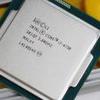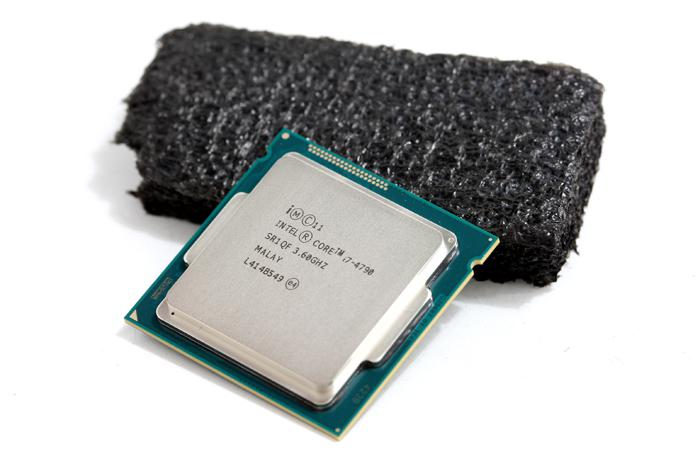Article
Intel Core i7 4790 tested - The 4770 revisited ?
The Haswell refresh is officially here and as such today we review the all new Intel Core i7 4790 processor. Join us as we look at the performance of this CPU in a wide variety of benchmark, will it be noticeably faster then say a Core i7 4770 ? Well today we will seek & find an answer to that. As you guys know Z97 and the Intel refresh of their Haswell processors has been anything from a well-kept secret, up-to the tiniest little details have spread on the web. Today the 11th of May 2014 however is the official date for the desktop side of the launch. This month a number of things are going to happen. You'll notice the new Haswell based processors, mostly all of them merely have a small 100/200 MHz clock frequency increment for a tiny boost in performance. However you'll notice an extensive wave of H97/Z97 motherboard releases as the manufacturers are releasing some really cool stuff alright. And then roughly in the Computex timeframe you are going to see releases of the K series Core i7 and i5 processors. These will be interesting for the performance mongers amongs us, the overlocker processors. The upcoming K model processors have been developed under code-name Devil's Canyon. They have an improved heatspreader & thermal insulation material in that CPU package that is going to cool these processors much better once you pump extra volts in them. But that is for a later article, of course, as the processors announced today are all non-K models.
So what is being released today processors wise ? Well, basically the entire existing Core processor lineup will receive small incremental clock frequency increases. These are as big as say 100 to 200 MHz. Other then that it is the very same Haswell processor that you might already have inside your system. On the desktop side you will see a new non-K flagship CPU, the 3.6 GHz Core i7-4790, this is the processor being tested today in this article. But also some low power variations of it (the 65 W TPD 4790S and the 45 W 4790T are being released). There are a dozen new Core i5 processors as well. As you guys know Haswell is a hint faster over the last generation (Ivy Bridge), not heaps though. Intel is facing the same problem that AMD stumbled into with their FX series processors. Injecting more and more transistors into a 22nm die will further complicate things. Next to that, the PC market has been changing and Intel is adapting to that. We see much smaller form factor computers including everything from a HTPC, to a small desktop PC to the latest tablets and upcoming detachable solutions. And as such, Intel's focus was to design an architecture that on the desktop side would make it the fastest four-core processors, yet also needed to be more energy efficient and offer a faster graphics solution for their mobile and tablet segment. That compromise my friends, is Haswell. Slowly but steadily processors get more and more features embedded; processor, graphics, chipset features, memory controllers and now also voltage regulation. As such it is safe to state that with Haswell, desktop processors really are SoC (system on a chip) parts as well. Haswell is a family of processors that use a 22nm FinFET process, opposed to Ivy Bridge which might have been the first family of 22nm products, but really was a die shrink of the 32nm Sandy Bridge, and not so much a new revolutionary design. For the desktop platform there will be one line that describes Haswell best, the Haswell architecture will be a small step forward in performance, a big step in IGP performance and a (positive) step down in power consumption, all are good things.
Most of the reader-base of Guru3D are the hardcore gamers that build their own PCs, so today a review on the flagship Haswell architecture based Core i7 4790. Unfortunately it is a non-K model, meaning chances of overclocking at close to NIL. We'll first take you through the architecture, the new features and then we'll start up the performance tests. Have a peek at what will be tested, and then let's head on-wards to the next page.


